Forging Frontiers: How Women are Shaping Scientific Fields in Utah
Note: All of the scientists pictured below will speak at the inaugural Women in Nature & Science celebration at NHMU on Saturday, February 10.
By Eliza Petersen
Various women throughout history who excelled in the sciences now offer inspiration to women today who are pursuing careers in STEM (science, technology, engineering, and mathematics), often in the face of ongoing prejudice.
More than 1,600 years ago, the astronomer, mathematician, and philosopher Hypatia drew large audiences with her intellect, eloquence, and enthusiasm which inspired her students to pursue knowledge and critical thinking. The German entomologist and naturalist Maria Sibylla Merian classified many new insect species, and her scientific illustration of the metamorphosis of the butterfly in 1705 contributed to the advancement of entomology. Famed fossil collector and paleontologist Mary Anning discovered fossils along the shore of the English Channel in 1811 that changed the way scientists understood prehistoric life. Joan Beauchamp Procter, an internationally recognized herpetologist, designed the most complicated and advanced reptile house of its time in 1927. In 1992, Dr. Mae Jemison broke barriers as the first woman of color to become an astronaut, spending more than one week orbiting Earth in the space shuttle Endeavour. And in 2012, Sau Lan Wu was a key scientist in the discovery of the Higgs boson particle, redefining the standard model of particle physics.
These are just a handful of the women who have made significant impacts in science for centuries. Yet even now, the UNESCO Institute for Statistics identifies that less than 30 percent of the world's researchers are women. Many studies have found that women in scientific fields publish less research, are paid less for their research, and do not progress as far as men in their careers due to a variety of barriers from workplace discrimination to financial considerations. But, one thing is clear: women in STEM careers change history and create better futures for everyone.
As we celebrate Women in Nature & Science, we recognize that the few famous examples mentioned above are only a fraction of the contributions women have made to science now and throughout history. We also recognize that the paths to pursuing a career in a scientific field looked different for each of them. With that in mind, we asked some of Utah's trailblazing women in science what they wish they'd known earlier in their career to help guide future scientists.
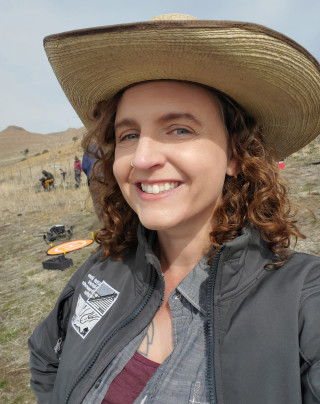
A LIFELONG PURSUIT OF KNOWLEDGE:
I didn't even know archaeology was a science until studying it in college! I had a very narrow definition of what a "science" field was, and it certainly didn't include any of the social sciences. When I was a kid I always loved science and scored well on science-based tests but felt discouraged thinking I would have to choose between "science" and archaeology. My advice: you probably can shoehorn science into any discipline you are drawn to, so don't feel limited by the careers you see around you! Dig deeper and you'll be surprised by the possibilities.
— Elizabeth Hora, Public Archaeologist, Utah State Historic Preservation Office
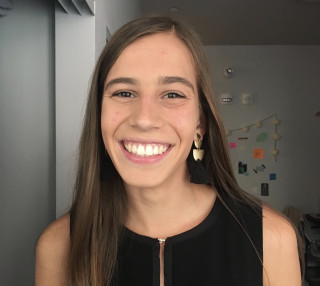
FOSTERING EVERYDAY CURIOSITY:
Something I wish I knew earlier in life is to ask questions! I used to think that asking questions was a sign that you were not smart, but now I realize that asking questions is how you learn and gain more knowledge. By not asking questions out of fear, I have lost so much knowledge I could've had. So, I urge you to ask questions - all the questions! I'm sure the teacher or professional would love to answer them!
— Corinna Peña, PhD Student in Physics and Astronomy, University of Utah
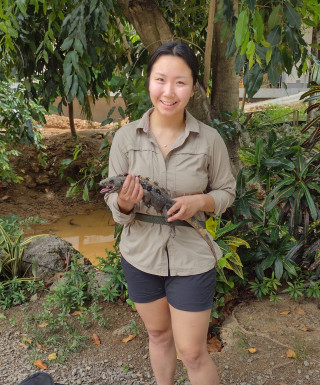
FINDING CONFIDENCE IN THE FACE OF SELF-DOUBT
As a woman of color in STEM surrounded by incredibly intelligent and talented colleagues, I often question and doubt my own abilities. I feel that I must work harder, be better, and do more, just to earn my place in academia and my doctoral program. I don’t look or feel like I belong, therefore I must prove to everyone else that I have something of value to contribute. But I often feel that I don’t. While these feelings are legitimate and actually quite common across all of STEM (it’s called imposter syndrome!), particularly for minority groups, they are not actually true. I wish I had sooner learned how to overcome these feelings of inadequacy and create a sense of belonging in academia within myself. If you are an aspiring scientist, remember that while it may seem daunting (and everyone else seems so confident), keep going. Find confidence within yourself because you are just as worthy and just as good as anyone else.
— Kwanho Claudia Ki, Graduate Student, Utah State University
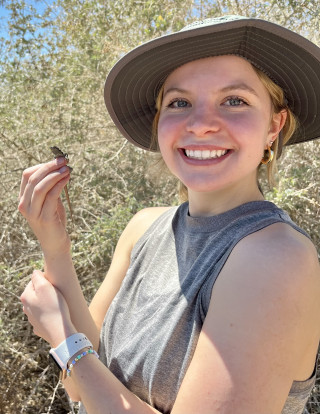
TURNING DREAMS INTO REALITIES
As a child, I dreamt of being an astronaut, a marine biologist, an Egyptologist, a paleontologist, and a myriad of other -ologists. I thought of them more as hobbies though, because who actually becomes an Egyptologist? I wish I would have learned sooner that I could, in fact, be any type of scientist I wished. I could turn curiosity into a job, ask questions, and then answer them. I always pictured a scientist as an Einstein or a Darwin, never seeing myself in them. Once I began my bachelor’s degree at Indiana University, I saw a scientist that looked just like me for the first time. It was then I knew becoming an -ologist was something I could achieve. Now, as a biologist and ecologist at Utah State University, I am constantly surrounded by other women in STEM that push me to be a better scientist every day. Stay curious!
— Layne Sermersheim, Graduate Student, Utah State University
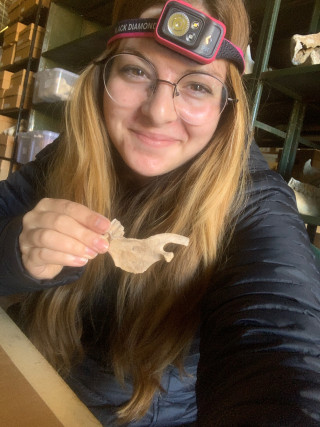
FINDING SUPPORT IN THE SCIENTIFIC WORLD
Your "worst possible scenario" will likely never happen, so embrace new experiences, even if they make you nervous, uncomfortable, or you feel like you're unqualified. If you're out of your comfort zone, it means you're learning and growing! Additionally, build a strong support network with people who genuinely want to see you succeed. Strong mentorship can open doors you might not have known existed. Always remember to ask questions, ask for opportunities, and ask for help. Recognizing the importance of self-advocacy as a woman in science is fundamental for setting yourself up for success.
— Kathryn Sokolowski, Graduate Student, University of Utah
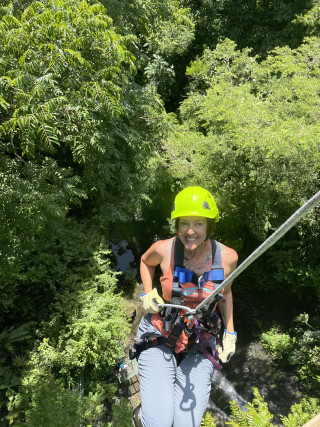
MORE THAN ONE “RIGHT WAY” TO BE A SCIENTIST
It's never too late to embark on your scientific journey. Throughout my adolescence, I confronted numerous challenges that posed obstacles to my success in high school. I entered the food service industry, drawn by the fact that it didn't demand a high school diploma—my GED was sufficient. For more than two decades, I dedicated myself to a career as a chef, honing skills such as experimentation, attention to detail, and patience. Little did I realize, these are the attributes of an effective scientist.
Thanks to the support of open access institutions, educational grants, and scholarships, I took the plunge into college life in my thirties. Although my initial goal was to earn a bachelor's degree and secure a position in restaurant management, my perspective shifted over time. I began to believe that, with hard work and persistence, I could become an Anthropologist and contribute to our broader understanding of the world. The realization that there are multiple pathways to becoming a scientist dawned on me, and I sincerely wish I had found this truth sooner. I encourage you to explore and discover your unique path in the pursuit of becoming a scientist.
— Megan Bartley, Graduate Research Fellow, University of Utah
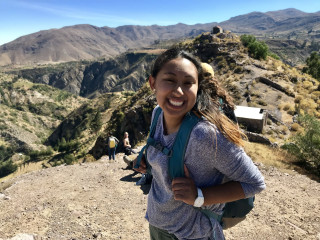
EVERYTHING, EVERYWHERE, PIECE BY PIECE
Something that I learned early on in my undergraduate career that helped propel me in my archaeological journey was to TRY EVERYTHING. Apply for the internship, volunteer at that one organization, and then do multiple internships or jobs in different roles. Try things out and see how you like them! It’s not until we’re really in deep that we can know if we like something or not. The class/internship/job you did on a whim might surprise you and lead you to the start of the rest of your life. And if it ends up being a bust, that’s not time wasted, but something learned, which is knowledge gained. Those risks I took as a young college student set me up to have the skills, connections, and opportunities to be in the position I am in today.
— Olivera Masters, Graduate Student, University of Utah
Note: All of the scientists pictured here will speak at the inaugural Women in Nature & Science celebration at NHMU on Saturday, February 10.